The Ultimate CDN (Content Delivery Network) Guide 2022
The Ultimate CDN Guide – Everything About Content Delivery Network 2022
You probably know what CDN (Content Delivery Network) stands for. You may also be aware of its full definition, but while there are some aspects of it that you can easily find on Google, there are others that are harder to reach. In this guide, we walk you through everything you need to know about CDN (Content Delivery Network).
Our 16 years of experience in this industry puts us on a very qualified level to write this guide.
We call it the Ultimate CDN Guide and if you run a business, own a website, are a student, or are simply curious about CDN, then this guide is meant for you to read.
In the age of the internet, a website is the first touchpoint between companies and the public. Without a website, it’s hard to develop trust amongst potential customers and partners. This is why today, regardless of the size and field of their business almost all companies have an official website.
Along with this, there are also companies that conduct their business through their official websites. E-commerce platforms, video sharing, streaming or OTT platforms are good examples of this. For this kind of platform, their website is the core of their whole business.
Mentioning the importance of the websites brings up an important service for the websites. Content Delivery Network or CDN services as they are abbreviated. Which we’ll handle in this article and take a look into their purposes and advantages.
What is CDN (Content Delivery Network)?
CDN is a cloud computing service that enables websites and OTT content to be transmitted from the nearest points through its geographically distributed architecture. This service minimizes the response times to requests from internet platforms that serve many different purposes such as e-commerce, games, and video.
Today, CDNs respond to the burden of the majority of internet traffic worldwide. CDNs offer a large number of websites and platforms that can reduce downtime and increase user performance.
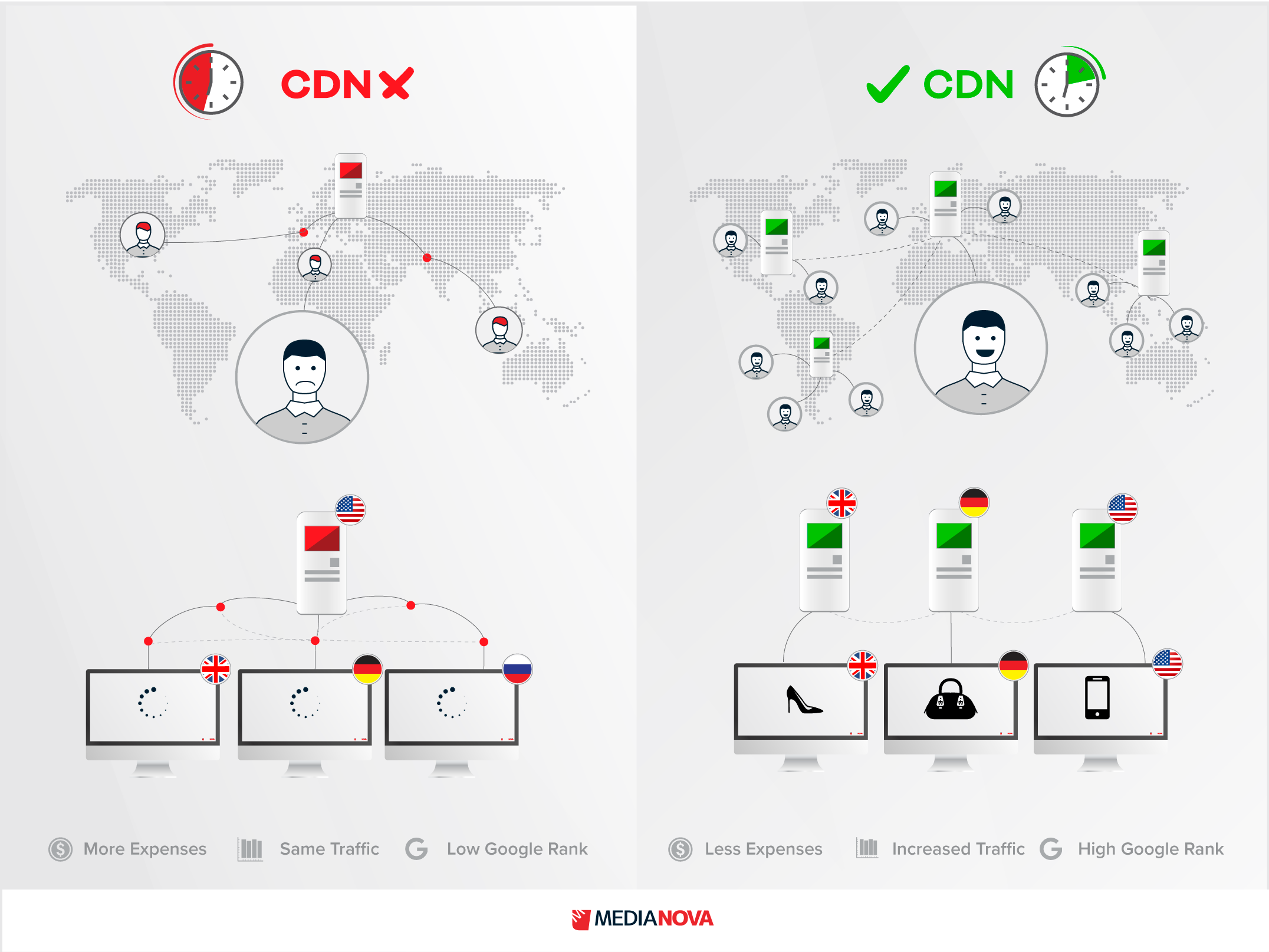
In recent years, the Internet has become so global that the above-mentioned platforms have 24/7 content requests worldwide. This makes it difficult for geographically distributed CDNs to respond to each point with the same performance. For example; An American-based platform cannot keep the quality of responding to contents with a traditional Content Delivery Network fast in America but slow in Europe.
How Can CDNs Benefit Websites And Online Platforms?
Although they improve the end-user experience ultimately, Content Distribution Networks’ primary customers are website or platform owners. Let’s have a look at the advantages they provide.
Decreased Load Times and Latency
Geographical location plays a key role in download speed and latency, as the Content Delivery Network network will receive and distribute traffic loads to the closest available servers. In this way, a strong network of CDNs will not only reduce page load times but also increase data transmission. Whether it’s a video streaming, gaming, or e-commerce platform, CDNs can provide faster connections to every visitor.
There are also other methods to ensure fast data transmission. Some CDN providers incorporate machine learning or AI to manage caching servers. Cached content is distributed according to demand so it can be kept readily available to the user. By caching web content closer to the client, CDN providers may further increase the response speed to user requests.
Easily Manage Traffic Peaks
In some sectors like e-commerce, user traffic tends to follow seasonal or periodic peaks. During these times, CDN providers will distribute user requests among available CDN servers to reduce the load. Load balancing prevents crashes and server overloads.
More Secure Encryption
Encryption methods change and evolve over time as their flaws surface through real-world use.Content Delivery Network providers are fast at adopting and applying these new technologies as they emerge. A good Content Delivery Network provider will apply new SSL certificates and encryption methods without impacting the usual operation of their clients. Often, clients won’t even notice the change.
New Data Transmission Technologies
Like the SSL encryption mentioned above, data transmission technologies also change and upgrade over time. For example, Brotli, BBR, and HTTP2 CDN providers will integrate these new technologies into your website, which means you’ll always have access to the latest data transmission updates.
Better Insights About Traffic
CDN providers hand the hard labor in the internet ecosystem. They handle almost half of all the data traffic on the internet. This means that they generate vast amounts of analytics data. This data can be shared with their customers, which gives them actionable insights, and intelligence into their user base. Also the Info analysis they may provide shows everything a developer needs to know to further optimize the website. In-depth reporting ultimately leads to the performance increase, which results in higher user experience and then further reflects on sales and conversion rates.
And to say the least:
CDNs are AGILE
Not all CDN providers have an AGILE backbone but the ones that do can help companies expand globally. Some Content Delivery Network providers can set-up new POP (point of presence) servers in a matter of days. This means their clients can expand into a new territory quickly without sacrificing user experience and service quality.
CDNs Are Cost-Effective
When considering the services a Content Delivery Network provides, as well as the potential income it will help generate through better user experiences, a CDN service is well worth the investment.
It’s also wise to keep in mind that without these technologies that the Content Delivery Networks provide some platforms wouldn’t even have a chance of competition ins the search engine results.
CDNs Improve SEO
We mentioned that some platforms wouldn’t even have a chance of competing in the search engine results. So how can Content Delivery Networks affect a website’s rank in the search engine results? Well, there are many factors under this topic. Search engines factor in many parameters when ranking a page or a website. They don’t disclose a full list of what they take into account but it’s clear that a page’s speed, data transmission security and the user experience it offers are a big part of the equation. In this regard, almost all we mentioned above contributes to a better result in search engine ranks.
How Can CDNs Affect a Website’s Rank In The Search Engine Results (SEO)?
Page Load Speed
These days, your customers are expecting the site to load instantly. So how does the CDN provide this expectation? In fact, everything is very simple. Google now takes speed into account. Google argues that If all else is equal, pages that load faster will rank higher. The reason is that Google did a study that proves that as little as an extra half-second in load time reduces the chance that people will stay on the site. CDN (Content Delivery Network) is thus particularly valuable for sites with a non-local or even global audience – it allows customers in Europe to load “local” copies of a site in the US. This is particularly important if you have complex sites and/or a lot of video content. The other way to speed up your site is to reduce the use of javascript and such, but if your site has interactive elements such as live chat, this may not be feasible or may negatively affect other things you are trying to do.
Bounce Rate
As mentioned – the faster your site, the more likely people are to stay around. This reduces a key element of page rank – bounce rate. Google defines bounce rate as the percentage of people who leave your site from the entrance page without interacting. Although a high bounce rate is also affected by poor site design and irrelevant content, load speed is still a key element because people have become impatient.
HTTPS and HTTP/2
Google ranks secure pages higher than insecure ones, for the sake of protecting customers. However, HTTPS slows pages down, causing problems with one and two (It is also very important to keep security certificates up to date as many people will leave a site immediately if they get a security certificate error). Let’s take a closer look at how exactly CDN services affect HTTPS.
CDN speeds up the implementation of HTTPS, mitigating the effect on load speed. “Edge” servers can handle the SSL/TLS handshake, reducing connection latency. To implement this smoothly, you need to choose a provider that explicitly offers a secure CDN, ideally using the newer HTTP/2 protocol, which is designed to be even more secure.
Dwell Time
The time people spend on your site is increased by ensuring that every page you have loads quickly. Implementing CDN is a faster way to do this than going through and optimizing every single page on your site. Track your time-on-site durations – you want an average of one minute or higher. Anything less than that indicates that even if people are not bouncing right off your site, they are not sticking around. The longer somebody stays on your site, the more likely you are to get a conversion.
Optimized Images
CDN allows you to optimize your images. This is not just important for page speed, but because about 63% of Google image search clicks turn into site traffic. Depending on your niche, you may get a high rate of traffic from image searches – and image rankings also take load speed into account. Obviously, this is more effective for some industries than others, but it is important enough that marketers should not ignore it.
Having striking images is essential, using a CDN helps make sure people see them.
As you can see, CDN integration is important for any company that operates outside its local area and vital for companies with global operations. It is cheaper than running your own servers in other locations but will provide your customers with the same impact. CDN improves page speed and optimizes image load times, which in turn reduce bounce rates and improve dwell time – all of which will see your website load faster.
However, some people may still confuse CDN (Content Delivery Network) with Hosting but we are all set to clear the confusion in the following section.
How is CDN (Content Delivery Network) Different From Hosting?
Web hosting is used to host your website on a server and let users access it over the internet. Generally, it refers to hosting on a single server. A CDN, on the other hand, delivers your content from a multi-server environment. However, a CDN (Content Delivery Network) will work by delivering content from multiple different servers.
Hosting is more like a store rental. It provides your website with a server from where it can be accessed, and user requests will get resolved. A CDN will first cache the content that is present on the main server in its multiple PoPs. When the user requests for a piece of information from the website, the requested content will get loaded from the cached content on the PoPs. This is how architecture will get altered.
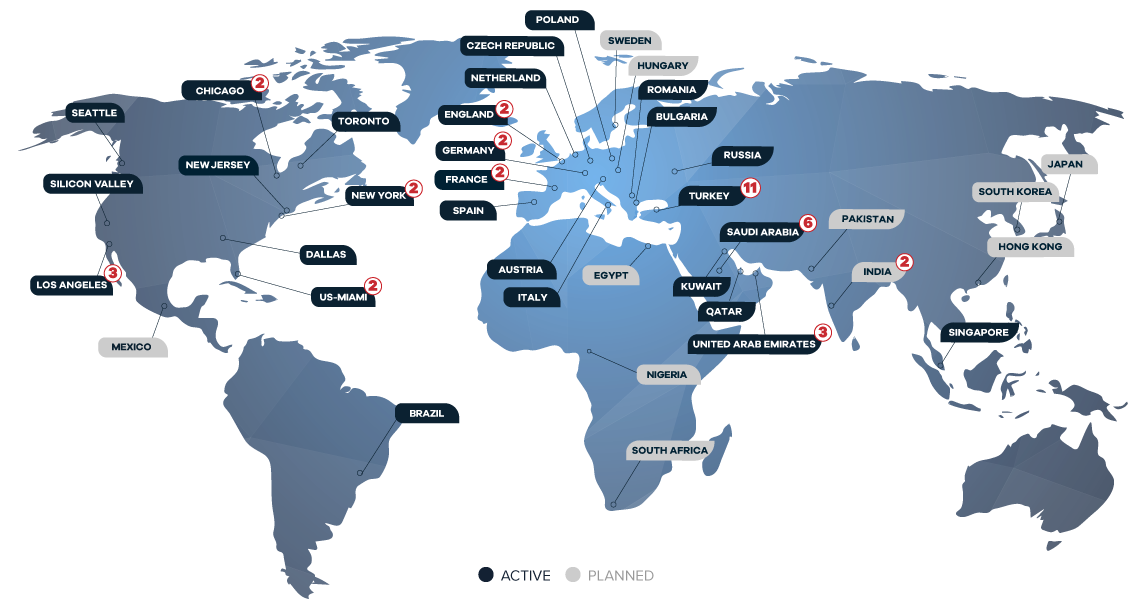
Technical Features in CDN
A CDN utilizes state-of-the-art and modern technologies to help deliver the best performance. Some of the modern technologies that it uses are the following – BBR, Brotli, TLS1.3 and SSL are the main features. The new feature nowadays is RTT-0
BROTLI: Brotli is a compression algorithm developed by a team of Google engineers and it serves best for text compression, helping achieve faster load times and preventing excessive space utilization.
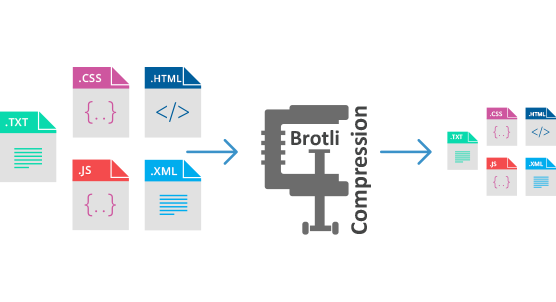
IMAGE OPTIMIZATION: Image optimization allows you to transform, reduce the size and serve images at the edge, closer to your users.

SSL ACCELERATION: We care about your security. Enjoy the benefits of a secure website by using custom or shared SSL options which can be enabled in real-time.
GOOGLE BBR: TCP congestion control algorithm built for the congestion of the modern internet, Google BBR helps you deliver faster and better-quality pages.

TLS1.3: Transportation Layer Security (TLS) 1.3 protocol provides unparalleled privacy and performance compared to previous versions of TLS and non-secure HTTP.

Zero Round Trip Time Resumption (0-RTT) speeds up resumed connections, leading to a faster and smoother web experience for websites that you visit regularly
A Business Case For CDN
A CDN is important for the future state of an interconnected world, where you want to reach out to a global audience. Research shows that a one-second delay in website loading speed lowers the conversion by 7 %. Investing in a CDN (Content Delivery Network) can go a long way to ensure that your server-side issues are taken care of. Especially as a business today, you might be serving a globally distributed audience base. If the user is located in a geographically far-off location, then the CDN will ensure that your website loads fast irrespective of where your user is located. According to BuiltWith, out of the top 10k websites, 48.3% of them are using a content delivery network.
This use case about StarzPlay will show you MEDIANOVA helped STARZ PLAY improve its CDN performance by 52% and lower its operating costs.
The Future of CDN
Predictions about the future of CDN (Content Delivery Network) can vary from one person to another. That’s why we asked our IT folks what they think about this topic and their answers can be summed up into the following:
“Serverless. With this new technology, not only will you keep the content on the servers, you will also run some parts of the app on Content Delivery Network. Codes in other words. Before, the codes of an e-commerce app were integrated and working as a whole on one machine. Then it was broken down into pieces by microservice and service-oriented architecture. In other words, you started having the pos service and basket service separately. Then services became “functions”.
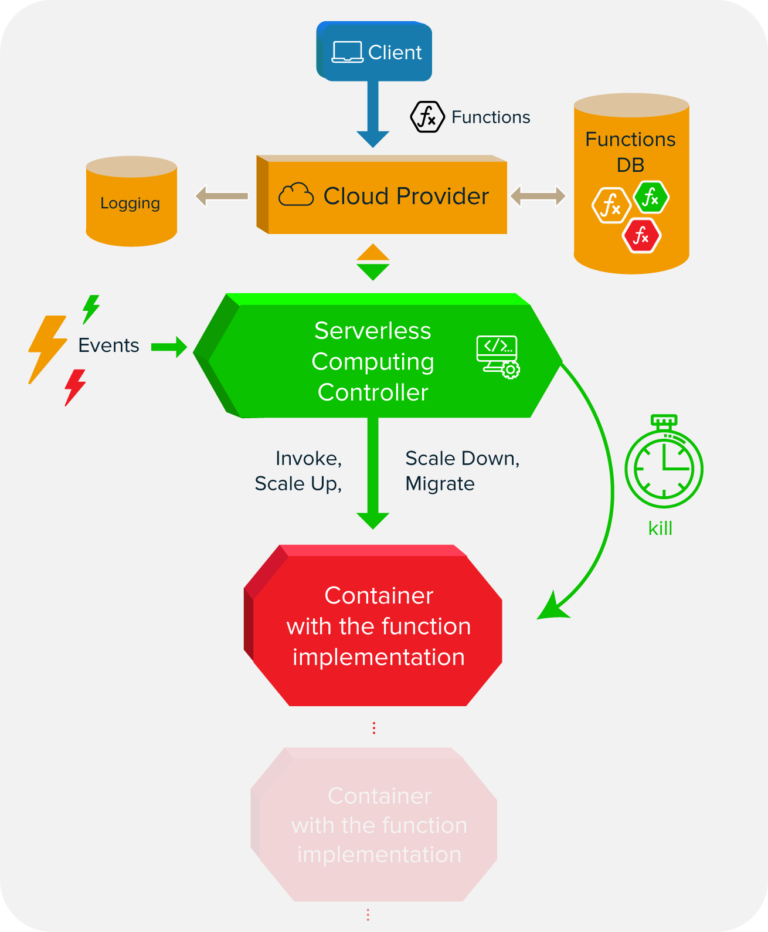
How to Decide If You Need CDN Services?
Not every website needs a CDN provider. There are ways to determine if a website or platform needs to take advantage of CDN services. A CDN can be a great solution for your business, especially if you serve customers or clients all around the world. Here are some examples of businesses that could benefit from a CDN:
E-commerce sites
long waits while they’re browsing your shop or trying to check out with their purchases. If you want a smooth and seamless user experience for your customers, even during times with heavy traffic, a CDN can be a great option. Not only does the CDN ensure faster loading time, but it also helps provide security and robustness for the site by helping avoid DDoS kinds of attacks helping avoid huge loads on main servers. Thereby, it helps to protect your main server from getting overloaded.
Financial institutions
Banks, credit unions and other finance companies can use a CDN to create a secure, reliable and fast way to transmit sensitive financial information. By helping insure against DDoS attacks, and server overload; it helps financial services companies provide reliable uptime and performance to its users. Security is the critical lifeblood of financial companies and a reliable CDN service will go a long way in ensuring that.
Media or news sites
Media and news sites are often content-heavy, and they include a lot of interactive elements to maximize user dwell time, and they tend to be dynamically updated with the latest news. CDNs can help to ensure that the content delivery remains fast and highly responsive, to bring the news to your users in real-time.
Government
Government websites also tend to be very content-heavy as they cater to a variety of citizen needs. CDNs can help government agencies provide much faster services to citizens.
Mobile apps
A CDN accelerates the load time for mobile applications and increases page responsiveness.
SaaS
CDN will help SaaS-based businesses scale easily and serve millions of web users, without causing a dip in the performance from the added user base.
Medianova’s CDN
Being a global and fast CDN (Content Delivery Network) provider is not easy. That’s why we don’t shy out from proudly expressing it. But we think that we should state the reasons behind our success to solidify that success and pave the way for more.
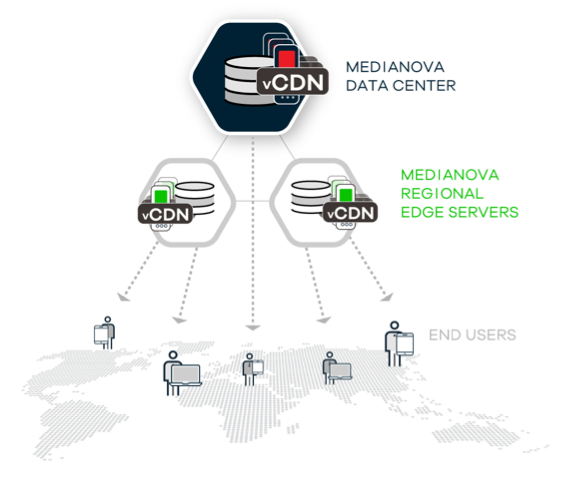
That’s why we would like to clarify the reasons behind our success for people who are looking for a better, faster, and more agile CDN provider so that can decide based on facts. As a side note, we don’t mean our competitors are particularly “inadequate” but rather we are just better. And let’s see “why”?
Agile CDN Mentality, EdgeCache Technology and Virtualized CDN
Hardware is the foundation of any tech business. Almost all tech giants and tech-savvy individuals go after the fastest, biggest, strongest hardware. But hardware can only take you so far. Without efficient use and constant optimization via software, hardware cannot achieve much.
That’s why at Medianova, we are very keen on adopting an agile mentality. Although in regard of hardware, we use the latest technology available, we take it one step further with the adoption of new software advancements such as BBR (Bottleneck Bandwidth and Round-Trip Propagation Time), video streaming standards such as H.265, patent-pending dockerized CDN Platform, HTTP/2, Brotli and TLS 1.3.
In a world where some of the global giant legacy CDN providers start laying off hundreds of employees, we keep a close eye on software advancements as well as new hardware technologies to stay ahead of the competition.
We Have One Focus: Faster Online Content Delivery
Companies offering services in multiple businesses cannot fully specialize in each of those businesses.
At Medianova, we are working our way towards a global cloud company.
From cloud storage to CDN, OTT (over-the-top) to streaming video, we handle the business as a whole, and we have expertise in it as a whole.
We Think Globally and Act Locally
Although regarding speed, data delivering technology the world has now cannot even be compared to, let’s say what it has 10 years ago, geography is still a factor.
The location of your servers and the location of your visitors, clients or users are still a major factor in the speed of your content delivery. That’s why we have [cgv datacenters] servers in [cgv countries] countries and provide one of the fastest services where we are located. In fact, 70% of the national media companies in Turkey working on Medianova platforms are serving to over 30 million internet users without any glitch. That’s also how we became the regional solution partner for global brands.
We Keep Your Data Secure
We secure our servers with the latest available technology, but we also take our own measures such as two-factor authentication. The reason behind we take such measures is simple: We know our clients. We know how they work. In an e-commerce platform, OTT service or a gaming network there are so many 3rd party collaborators that need to access the system. Multi-entry points mean more vulnerabilities in security. Since we or our clients cannot prevent all the administrators and other contributors from accessing the system, we provide extra security without sacrificing convenience. Fast for users, secure and easy for employees. That’s how we roll and this is why all our services are GDPR-ready (General Data Protection Regulation).
We Provide Convenience
We know that faster internet is not a luxury, it is just the new norms.
Users want to watch videos in the instance of a click and gamers snap if they miss a shot because of delay.
Even a CAPTCHA can make users leave a site and never come back again. Yes, you may expect them to understand that this is also for their own security. You can even try to make them understand that, but you can’t. Therefore, we work on technologies like “bad bot protection”. Because we want what the users want too and provide our clients’ platform with it. We want to be more secure and convenient at the same time. Well all CDN want that too, but our difference from the most of them out there is: We achieve it.
There are some qualified CDN providers out there and we are aware that everyone tries their best in this game. But the services we provide are the difference between good and the best.





